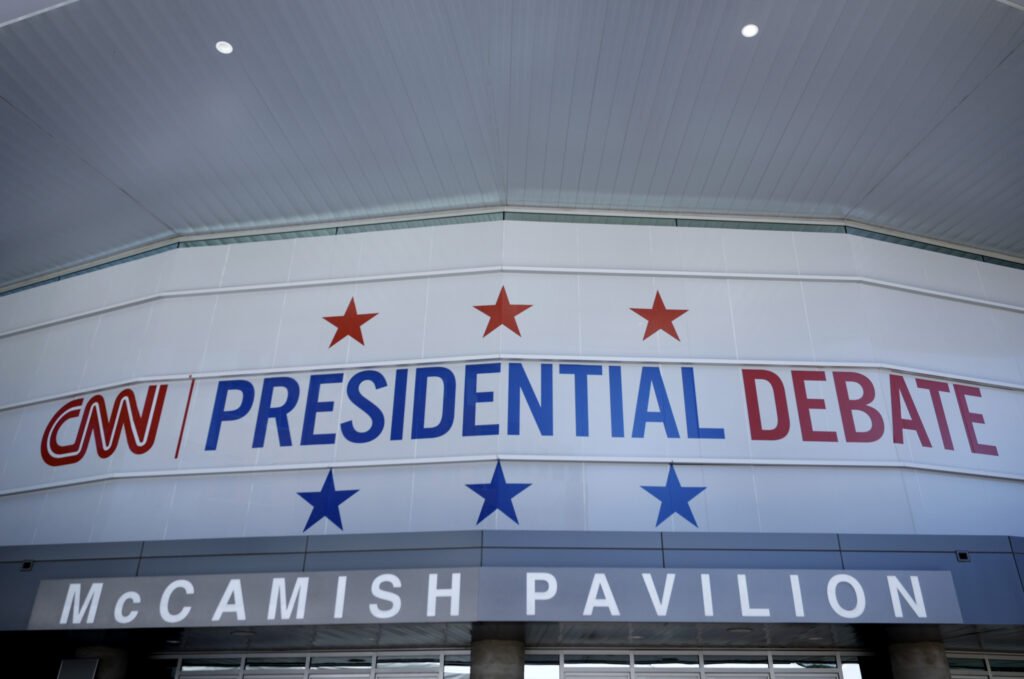On Thursday night, President Joe Biden and former President Donald Trump will face off in the first presidential debate of the 2024 election cycle. While the event is sure to garner media attention and public interest, it is important to temper expectations about its impact. Presidential debates play a role in our democratic discourse, but their impact on election outcomes is often overstated.
Never in American history has a presidential debate significantly altered the trajectory or outcome of an election. Consider recent election cycles: In 2016, Trump won despite a controversial debate performance; in 2012, Barack Obama’s lackluster first debate with Mitt Romney didn’t prevent him from being re-elected; and the 2000 Bush-Gore debate was memorable for its quirks but didn’t decide the outcome of a close election.
Even the most iconic debate moments, like Ronald Reagan’s quip in 1984 about Walter Mondale’s “youth and inexperience” or Lloyd Bentsen’s line to Dan Quayle, “You’re no Jack Kennedy,” are etched in our political memory, but they did not fundamentally change those campaigns.
Even the 1960 Kennedy-Nixon debates are more complicated than they are made out to be. John F. Kennedy’s telegenic appearance impressed TV viewers, while radio listeners tended to support Richard Nixon. Ultimately, Kennedy’s narrow victory depended on factors beyond the debate stage.
Our continued emphasis on debates is the result of a combination of media coverage, an appetite for political theater, and a desire for meme-worthy one-liners amid the chaotic reality of electoral politics. Debates tend to reinforce rather than change existing views.
This is especially true in 2024. Both Biden and Trump are public figures with established public personas. Voters have spent years forming opinions about their personalities, policies and leadership styles. A strong debate performance or notable gaffe might shift slight perceptions and result in a bump in the polls, but it’s unlikely to cause a wholesale realignment of the electorate.
Debates play a critical role in our democracy. They provide a rare opportunity for candidates to debate face-to-face, allow voters to compare the candidates’ temperaments, quick thinking, and policy savvy, and they bring important issues to the forefront and sometimes produce moments of real insight and clarity.

Kevin Dietsch/Getty Images
But the factors that truly decide elections are often more systemic and long-term — economic conditions, national security concerns, demographic shifts, grassroots movements — that shape voter preferences over months and years rather than being decided by a single night on television.
Of course, there’s a good chance that Biden will deliver a knockout punch or that Trump will collapse onstage, but the situation will remain the same come November: Elections will be won not by soundbites or talking points or newly coined nicknames, but by policy proposals that address the real concerns of Americans.
In a fragmented media environment, fewer Americans than ever will watch the debate in its entirety and most will experience it through selective clips on social media or partisan cable TV commentary, further diminishing the potential impact.
The Biden vs. Trump debate will undoubtedly grab headlines and garner discussion, but let’s look at the bigger picture: History has shown that presidential candidates do not win or lose on their performance in a debate alone.
Thursday night’s debate will be no exception: a national conversation that will then be edited down into short pieces that will be turned into campaign ads and TikTok videos. The course of our democracy will be decided through sustained civic participation and voter engagement on real issues that will shape the country’s future, not a two-hour televised political drama.
Mary Anna Mancuso is a political strategist.
The views expressed in this article are the author’s own.
Rare knowledge
Newsweek is committed to challenging conventional wisdom, seeking common ground and finding connections.
Newsweek is committed to challenging conventional wisdom, seeking common ground and finding connections.

